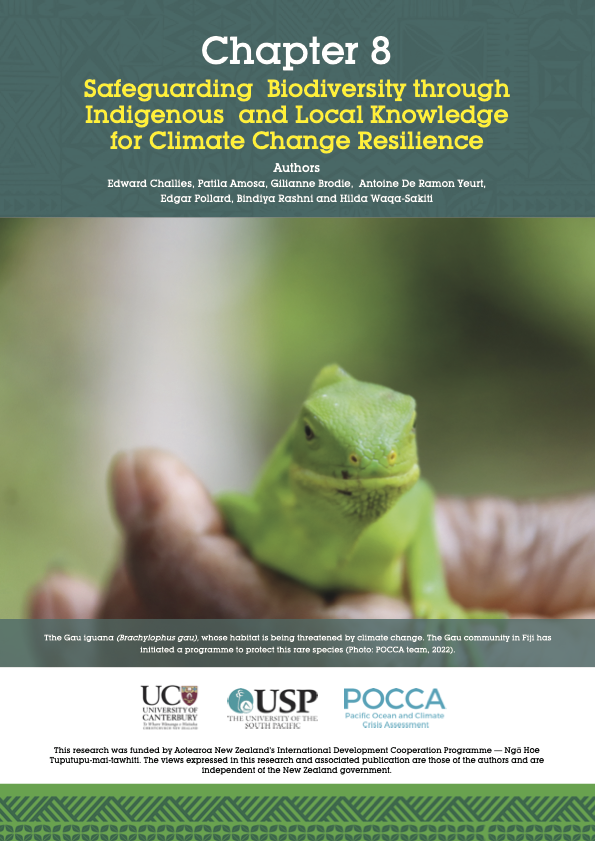
Authors
Edward Challies, Patila Amosa, Gilianne Brodie, Antoine De Ramon Yeurt, Edgar Pollard, Bindiya Rashni and Hilda Waqa-Sakiti
Abstract
This chapter highlights the fundamental importance of biodiversity to the health and spiritual well-being of the Pacific region and people, and to the health of our planet, especially in the context of climate change. The Pacific is internationally recognised for its vast ocean and exceptional biodiversity which for centuries has sustained life, provided food, medicine, and resources for highly diverse cultural and traditional practices. Addressing and mitigating the impacts of climate change on biodiversity in the Pacific region requires a holistic perspective from terrestrial to freshwater and marine environments, including impacts on areas of both high (hotspot) and low (cool spot) biodiversity in unison with the unique human communities they sustain. The importance of local cultures, practices and Indigenous knowledge in maintaining and building responses to climate impacts, such as the role of ‘nature-based’ approaches, are discussed. We explore how the interconnected processes of climate change and biodiversity loss threaten balanced social-ecological outcomes on our islands in the Pacific and showcase how climate change responses that are embedded in nature and culture can be led by local communities in partnership with local and national governments. Key policy recommendations and research gaps are also identified, including the need for strengthened connection to the private sector, ecosystem services valuations that clearly reflect the economic value of habitat and biodiversity and a just transition to sustainable economic development via engagement with local communities, business, and industry. Only by working together, fully utilising existing information and understanding each other’s perspectives can we reduce ecosystem disruption, achieve integrated biodiversity conservation and foster sustainable climate change resilience.
Rights
All rights reserved. This book is in copyright. No part must be republished without permission of the publishers.
